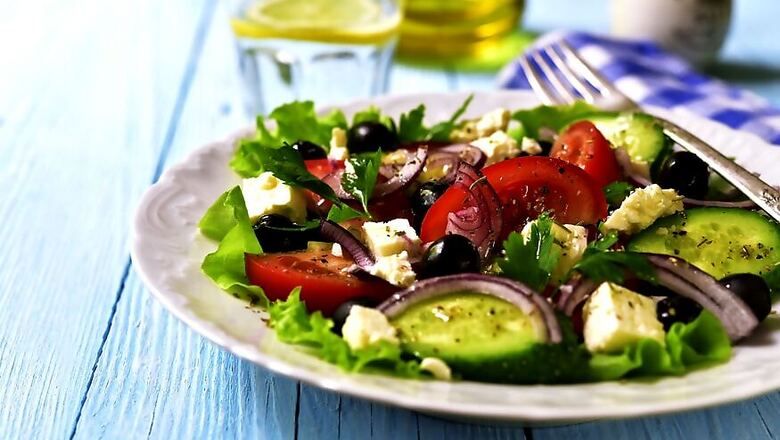
views
Eating large quantities of low-calorie food (such as vegetables and lean meat) could help with staying slim in the long term due to a greater sensation of fullness, concludes a study published in the Journal of Nutrition.
British researchers at Leeds University have studied how to attain a sufficient feeling of fullness to avoid getting hungry between meals, as this is one of the keys to losing weight over the long term.
Their findings indicate that to lose around 5kg in 3.5 months, meals need to consist of generous quantities of low-calorie foods (vegetables, lean meat, brown rice, etc.) due to their high concentrations of water, fiber and protein which help us to feel full.
Doctor Jacquie Lavin, Head of Nutrition and Research at the weight loss program Slimming World in the UK, to which half the women in the study belonged, explains that this technique of filling your plate with low energy density food enables you to eat more and feel more satisfied while at the same time losing weight, and not feeling guilty or worrying about quantities.
The study found that the participants with an average age of 41 who followed this type of diet for 14 weeks ate 1,057 calories less per day than those who were restricted to 1,400 calories per day from any type of food. Those who were obese or overweight at the start of the study lost 6.2% of their initial weight, i.e. around 5.8kg compared with 3.3kg for the restricted-calorie group.
To assess levels of hunger and sensation of fullness, the researchers came up with a test over four days alternating the two types of diet. When questioned about their hunger levels three hours after breakfast and lunch, the women reported an average sensation of hunger of 29.5 on a scale of 1 to 100 on the less energy-dense days, compared to 53.8 on the days they ate any type of food. The sensation of fullness was rated 56.2 on the low-calorie food days compared with 31.4 on the "fasting" days.
While 250g of carrots are equal to 20g of chocolate in calorie terms, the study does not mention that it is important to indulge yourself from time to time to avoid imbalanced eating patterns, which are often driven by emotions.




















Comments
0 comment